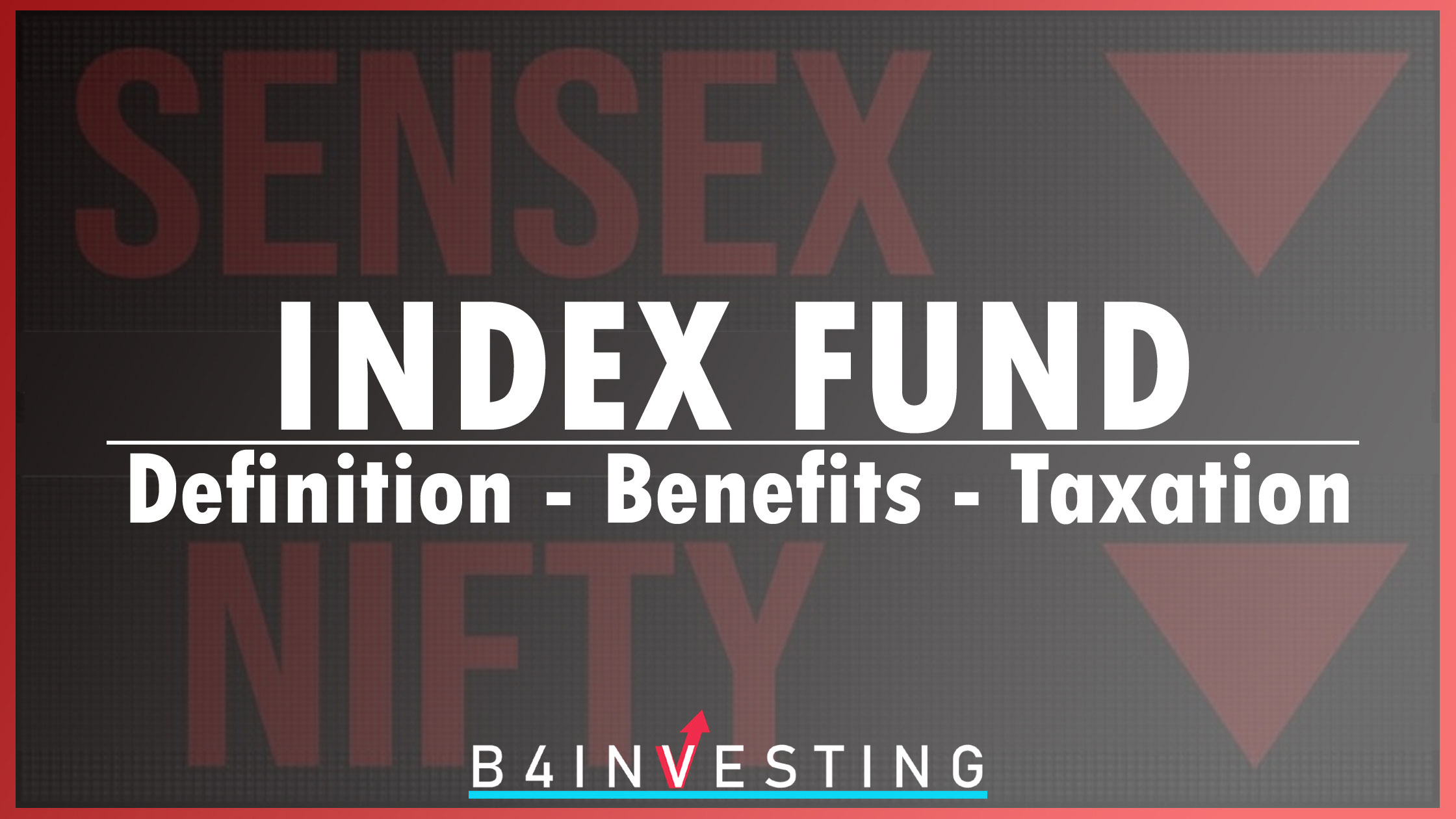
Index Fund – Definition, Benefits, Taxation
According to the Association of Mutual Funds in India (AMFI), mutual fund is a pool of money managed by a trust that collects money from a number of investors sharing similar investment objectives and invests the same in equities, bonds, money market instruments, and/or other securities. There are various types of mutual funds.
Index fund is one type of mutual fund and it is passive mutual fund. Index fund is a mutual fund which follows one particular market index and purchases stocks which make that index. A market index tracks the performance of a certain group of stocks, bonds or other investments. Performance of index fund goes hand in hand with market index in which index fund has invested.
Index fund is not actively managed fund. Index funds do not outperform the market. Instead they track the index. So, index fund is generally used by investors to manage or balance the risk.
Read also: Is it safe to invest in Mutual Fund?
How does Index fund work?
Fund manager plays an important role in mutual funds. But, in case of Index fund, like any other mutual fund, fund manager does not select industries, stocks to build portfolio of fund. Index funds simply invest in all stocks which make up the index. The weightage of the stocks in the fund matches the weightage of each of the stock in the index.
Suppose, when an index fund is tracking market index, NIFTY. So, its portfolio has top 50 stocks that makes NIFTY in the same proportion. The NIFTY 50 is a index which represents the weighted average of 50 of the largest Indian companies listed on the National Stock Exchange(NSE).
If the weightage of a stock within the index changes, the fund manager of index fund must buy or sell units of the stock to have its weight in the portfolio aligned to that of the index. But, index fund does not produce the same return what index shows because of tracking error. Tracking error is the difference in actual performance between the fund and its corresponding benchmark It is not easy to hold the stocks of the index fund portfolio in the same proportion as of market index so tracking error occurs. Fund manager always tries to minimize the tracking error. And transaction cost is also required to change the weightage of stocks.
What is the difference between actively managed funds and index funds?
| Index Fund | Actively Managed Fund |
| Try to match the specific market index benchmark | Try to out perform the market benchmark |
| Low expense ratio | High expense ratio as compared to index fund |
| Low management fees | High management fees |
| Risk is less | Risk is more compared to index fund |
Who should Invest in Index Funds?
Selection of mutual fund depends upon investor’s risk appetite and investment goals. When you don’t want to take high-risk and and you want to invest in equity then index fund is a good option. The return of index fund depends upon the particular market index. The risk of investing in actively managed fund is high when you don’t have much knowledge of equity. But if you want to earn more return then then actively managed fund is a better option.
Index fund generally gives better return if invested with long term horizon. In short term, the index fund fluctuates a lot and it can be averaged out in log term. Investment horizon of around 7 years or more can give better return.
What are the benefits of investing in index funds?
- Low fees: As index fund follows particular market index, fund manager does not need any expert team to do market research to select the instruments to build a portfolio. If two index funds are mapping same index then investor has to select which has lower expense ratio.
- Risk tolerance: Index funds are not so much exposed to equity related to volatility as they map market index. But when market goes down, it loses it value and when market goes up it gives good return.
- Financial goal: Equity funds are long term investment and can be a good option for long term financial goals like retirement or wealth creation. Though equity funds are high risk but can create good wealth for your retirement.
How are index funds taxed?
- Dividends received by the investors on index funds are added to their taxable income and taxed at their respective income tax slab.
- When investor holds investment for less than an year, it is taxed as short term capital gain. In short-term capital gains, the Short-Term Capital Gain (STCG) Tax rate is 15.6% (15%+Cess) irrespective of the income tax bracket.
- When investor holds investment in index fund for more than an year, it is taxed as long term capital gain. In long-term capital gains, the gains of up to Rs.1 lakh a year are tax-exempt. Any gains exceeding this limit calls for Long-Term Capital Gain Tax (LTGC) Tax at the rate of 10%. Even if you hold the equity fund for 10 years, there is no benefit of indexation available.
Takeaway:
Equity mutual fund carries risk but it has potential to give good return if held for long term. If you want to invest in equity fund with long investment horizon and want less risk then index fund is a good option. Index fund follows particular index so return depends on market index. And even if expense ratio of index fund is low but tracking error is high then it cannot give expected return.

